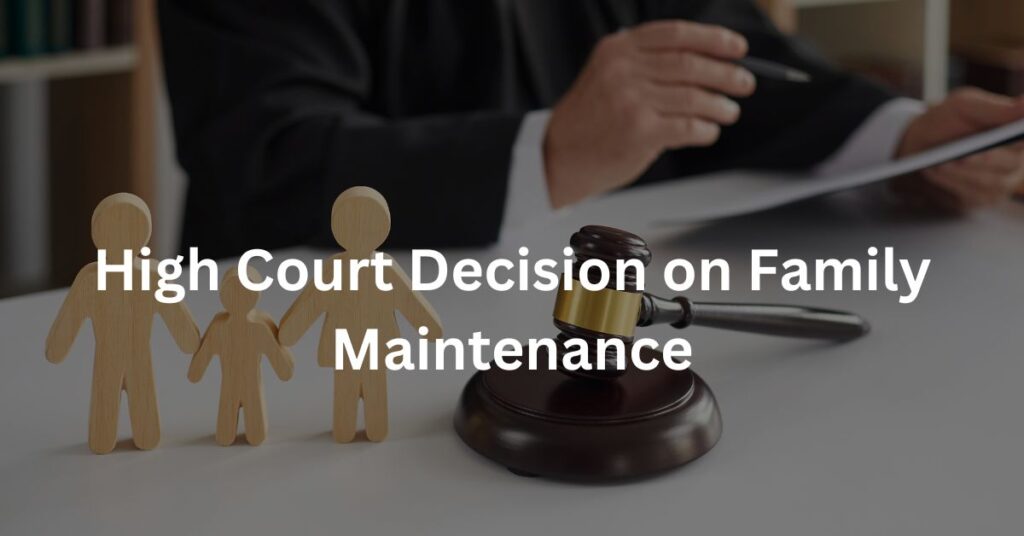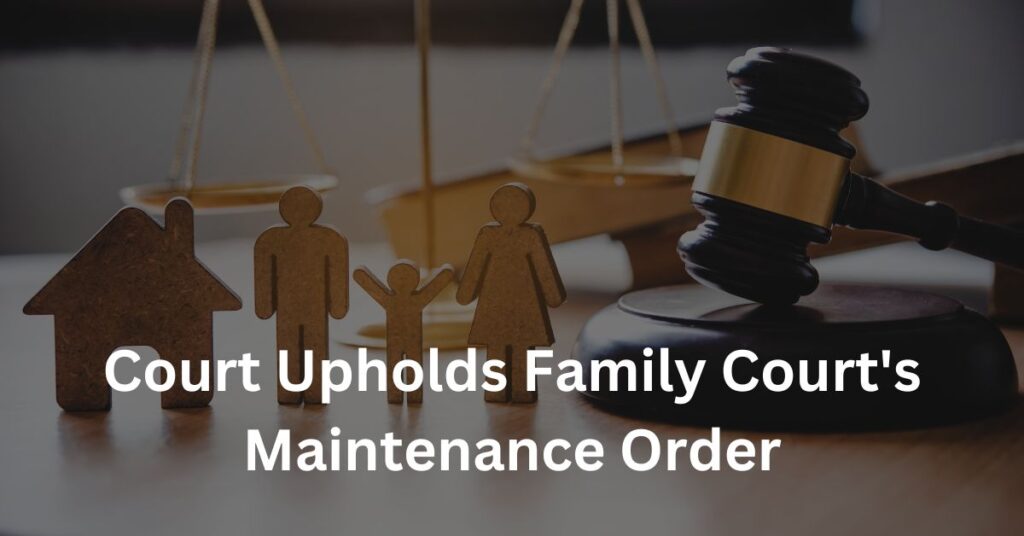Delhi High Court, October 9, 2023 – In a significant legal development, the Delhi High Court recently upheld an interim maintenance order for a disabled husband. The judgment, pronounced in the case, registered as MAT.APP.(F.C.) 133/2022, has garnered attention due to its implications for cases involving disability and maintenance in marriages.
Table of Contents
ToggleBackground of the Case
The case revolves around the marriage between a disabled husband and his wife, which took place on April 9, 2014. The couple had known each other since 2010 when they met at a gym. However, their married life faced significant challenges due to the husband’s disability.
The husband had suffered a serious accident in 2011, resulting in the loss of his leg. During his hospitalization, his wife visited him regularly. According to the husband, he was pressurized by his wife to marry her in 2014. The marriage took place on April 9, 2014, but it was not without its difficulties. The husband alleges that his wife did not disclose his disability to her family, and upon discovering it on the wedding day, her family attempted to annul the marriage. However, she reassured the husband that she would take care of everything.
After marriage, the couple lived in a rented apartment near the husband’s parents’ home. The relationship between them deteriorated over time, leading to the wife leaving the husband in June 2015. This separation had a severe impact on the husband’s health, and he met with another accident in June 2016, leading to hospitalization. During this period, the wife did not visit him.
In May 2019, the wife filed a divorce petition. During the proceedings, she also filed an application for interim maintenance.
The Interim Maintenance Order
The Family Court, New Delhi, had issued an interim maintenance order on April 18, 2022, directing the husband to pay his wife Rs. 20,000 per month from the date of filing of the petition until the case’s final disposal. The court also instructed him to clear the arrears of maintenance within three months and pay monthly maintenance by the 10th of each calendar month. The wife was entitled to receive the maintenance, including any additional allowances awarded by various courts.
The Appeal
The husband appealed the interim maintenance order, primarily on the grounds that the court had not considered his disability and financial situation. He argued that he had no independent source of income and was dependent on his father’s business, which had suffered due to the COVID-19 pandemic.
In response, the wife maintained that the interim maintenance order was justified and should not be overturned.

The High Court's Decision
The High Court carefully examined the evidence and arguments presented by both parties. They noted that the husband had suffered a serious disability and was dependent on his father’s business for his livelihood. He provided documents, including medical records and financial statements, to support his claims.
The wife, on the other hand, had a BBA degree and had been working as a teacher both before and after their marriage. However, since June 2015, she had been living with her parents and claimed to have no source of income during the divorce proceedings.
The High Court observed that the purpose of interim maintenance, as per the Hindu Marriage Act, is to provide financial support to the spouse who lacks independent income to cover their expenses during legal proceedings. The court does not delve into the merits of the case but focuses on ensuring the applicant’s financial needs are met.
In this context, the High Court found that both parties had provided affidavits about their income and expenses. While the husband claimed to have no income and be completely dependent on his father’s business, the wife claimed she had no income and was residing with her parents.
The court noted that it could not presume that the husband had no income at all, especially given his involvement in his father’s business. It also considered that the wife had been living with her parents, which indicated her dependence on them.
In light of these factors, the High Court concluded that the Family Court had rightly awarded interim maintenance of Rs. 20,000 per month to the wife. It enabled her to meet her routine requirements during the legal proceedings. The appeal was dismissed.
Conclusion
The Delhi High Court’s decision to uphold the interim maintenance order in favor of the wife has significant implications for cases involving disability and maintenance in marriages. The court emphasized that its role in such cases is to ensure financial support for the dependent spouse during legal proceedings, without delving into the merits of the case.
This ruling serves as a reminder of the importance of providing evidence of income and financial dependency when seeking maintenance in divorce cases. It also highlights the court’s discretion in determining the quantum of maintenance based on the factual situation of each case.
Download Judgment
Click above to download this Judgment in the case titled MAT.APP.(F.C.) 133/2022. It can serve as a valuable resource for legal reference.


